PERSONAL
HYGIENE AND ITS
IMPORTANCE

WHAT IS PERSONAL HYGIENE?
Personal hygiene is
nothing, but how you care for your body. You should practice good personal
hygiene as it helps in keeping the body healthy and clean. For
maintaining personal hygiene, you should keep all parts of the external
body clean and healthy.
It is the practice that includes bathing, washing your hands,
brushing your teeth, and more.
Nowadays, germs and viruses are common outside. They can attack your body and may make you sick. Personal hygiene practices not
only help you prevent illnesses but also make you feel good about your
appearance.
Here is an outline of personal hygiene and its importance.
WHAT ARE TYPES OF PERSONAL HYGIENE?
There are many types of personal hygiene out of which few
are listed below which are the good startups for building good hygiene habits:
- Teeth
hygiene
hygiene
You should brush your teeth twice a a day with a soft-bristled brush. Caring your teeth and gums is the best
way to prevent cavities and gum diseases.
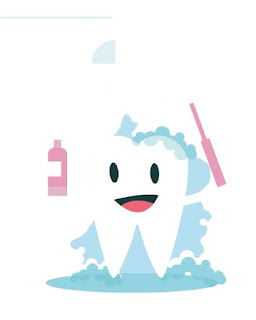
You should brush after you wake up
and before going to bed.
You should replace your toothbrush
every three or four months, or sooner if the bristles are frayed. A worn
toothbrush won’t do a good job of cleaning your teeth.
- Body
Hygiene
Hygiene
The human body is covered with
several million sweat glands. You should shower or bathe daily, using soap and
water to rinse away dead skin cells, oil, sweat, and bacteria.
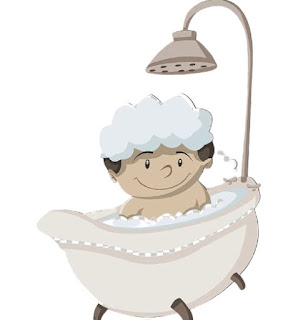
Special attention
should be paid to areas that accumulate more sweat, such as the armpits, in between the toes, and the groin area.
You should also wash your hair at
least twice a week. Shampooing your hair and scalp helps remove skin buildup
and protects against oily residues that can irritate your skin.
- Washing
Hands
Hands
Nowadays, washing hands for 20-40 sec
is a must for preventing viruses as well as bacteria from you. Germs on your
hands can easily enter your body through your mouth, nose, eyes, or ears.
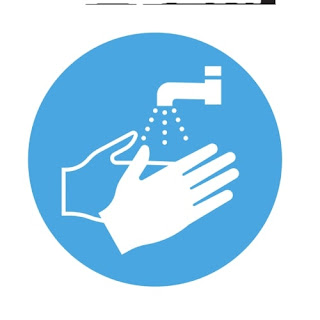
- You should
wash your hands
- Wash your
hands:
- when
you handle food - before
you eat - if
you handle garbage - when
you sneeze - any the time you touch an animal
How
to wash your hands effectively?
A/c t CDS outlines
effective steps for handwashing are:
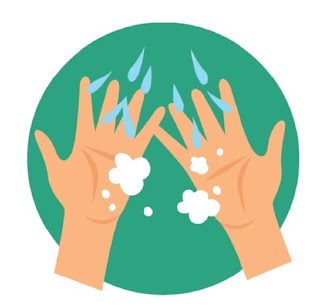
1. Wet
the hands with clean, running water, then turn off the tap and apply soap.
2. Lather
the hands by rubbing them together with the soap, remember to reach the
backs of the hands, between the fingers, and under the nails.
3. Scrub the hands for at least 20 seconds.
4. Rinse
the hands well under clean, running water.
5. Dry
the hands using a clean towel or air dry them.
- Nail
hygiene
hygiene
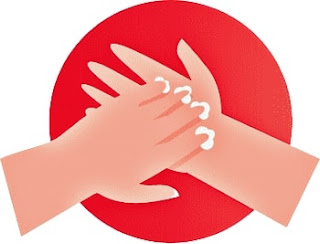
You should trim your nails and make
them short to prevent dirt collected underneath them. Brush under them with a nail
brush or washcloth to rinse away buildup, dirt, and germs.
You should strictly avoid biting your
nails.
- Menstrual
and genital hygiene
and genital hygiene
It is very
important to change sanitary products regularly and to wash the hands before
and after you change tampons, pads, or any other sanitary products.

You should clean your
vulva i.e. the external part of the vagina once a day using a mild soap and water.
As vaginas are self-cleaning, using soap to clean the vagina can cause an
imbalance of its natural bacteria and lead to infections.
People with an uncircumcised the penis can clean it by gently pulling back the foreskin and washing underneath
it with warm water or soap.
- Sleep
Tight
Tight
You should have a sound and plenty
sleep at night for 8-10 hours.

A/c to Novey, lack of sleep can leave
you feeling run down and can compromise your body’s natural defenses, your
immune system.
PERSONAL HYGIENE FOR KIDS
Good personal hygiene is essential
for your kids to stay healthy, ward off illnesses, and for building better
self-awareness.
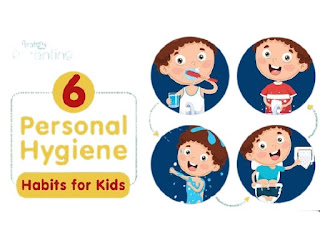
You should teach your kids to
properly maintain good personal hygiene. A kid’s having good physical and
mental health enables them you grow healthy and wise.
Following are the lists to start
with:
- Brushing
Teeth
Teeth
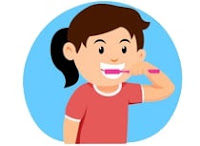
You can begin brushing your
baby’s teeth and gums the moment the first tooth pops up. They can brush their
own teeth by about 3 years old. You should teach them to brush their teeth for
2 min every day. However, you should stay with them so as to guide them to brush
their teeth effectively.
- Bathing

You’ll be giving your baby baths
regularly, but by about age 5, they should be able to handle this task on their
own. As they’re growing, you should take the opportunity to teach about washing
all the different body parts, especially:
- armpits
- groins
- neck
- belly
- knees
- elbows
- back
- feet
Before having meals, you should wipe
your baby’s hands with a warm cloth. It should be done also after eating and
changing the diaper.

You should train your baby to wash
their hands after going to the potty.
Set the time for few seconds (20sec)
form those by making them sing a song while they do the same.
- Sickness
hygiene
hygiene
In case you’re not feeling well, you
should find a way to keep from spreading germs to other people.
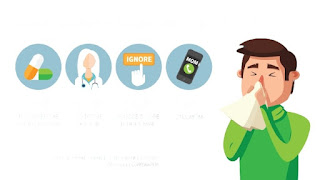
This incorporates covering your mouth
and nose when sneezing, cleaning down imparted surfaces with an antibacterial
wipe or hand towel, hand sanitizers and not sharing any utensils or any gadgets
because this might lead to infections, rashes inflammation, etc.
Likewise, promptly discard any dirty
tissues, Ear wax because they are perfect places for germs and dirt to get
accumulated.
- Nail
hygiene
hygiene

You’ll clip your child’s nails when
they’re a baby, but as they grow older, you can help them care for their own
nails. Make them wash, under their nails at each shower by encouraging them.
WHAT ARE THE ADVANTAGES OF PERSONAL HYGIENE?
- Eliminates
Odor
Odor
Showering or bathing daily eliminates many
unpleasant bodily odors. If you shower every day, but still experience underarm odor,
this could be caused by stale sweat on infrequently laundered clothing.
While bathing, you should always clean the genital and anal
areas, as well as underarms and feet. You should change your clothes daily.
You can use a gentle but pleasant-smelling shower gel and light
body lotion to keep yourself odor-free. This provides a relaxing, pampered
feeling as well as helping to eliminate unwanted smells.
- Healthy
Mouth
Mouth
Looking after your teeth not only fights bad breath, but it also
helps prevent cavities and toothache. Basic oral hygiene involves cleaning your
teeth twice a day.
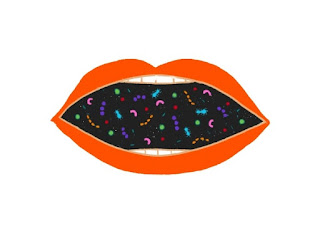
Fresh breath is an immediate benefit of clean teeth, but you
also, experience a reduction in plaque and therefore less risk of gum disease
and tooth decay.
- Clearer
Skin
Skin
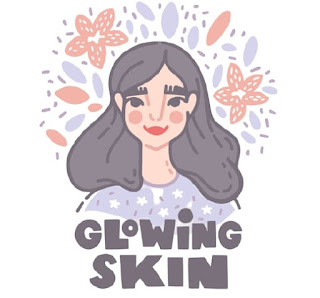
Keeping your skin clean helps it to stay glowing. You should wash
your face morning and night to clean away excess grease, the dirt of the day , and makeup. Cleaning your face helps you to prevent clogged pores and
blackheads.
Cleaning away makeup before bed keeps skin looking brighter and
fresher than before, which gives a boost in your confidence.
- Staying
Well
Well
Easy ways to rid the skin of dirt include daily showering,
cleaning under nails, and washing hands before eating and after using the
lavatory. Maintaining these habits cuts your risk of stomach bugs, skin
infections, colds, and the flu.

Washing hands and body with a gentle soap literally washes
bacteria and viruses down the drain.
these are some importance of personal hygiene
This makes you healthier all year round.
WHAT ARE THE NEGATIVE EFFECTS OF POOR PERSONAL HYGIENE?
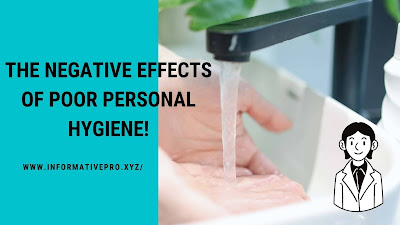
Having proper personal hygiene is vital in a person’s daily life.
Daily routines keep the body clean. Examples of these are hand washing,
brushing of teeth, washing your hair, using deodorant and scrubbing your body
with soap and water.
Poor personal hygiene may also have an effect on the workplace.
Companies may be more likely to offer jobs and promotions to individuals who
appear to take care of their health and presentation. Poor personal hygiene can
be particularly problematic in the food industry.
Poor personal hygiene may lead to the following:
- Body
Odor - Bad
Breath - Urinary
Tract Infection - Body
Lice - Athlete’s
foot - Tooth
decay - Head
lice - Hot
tub rash - Pinworms
- Pubic
lice - Scabies
- Swimmer’s
ear - Ringworm
HOW TO MAINTAIN PERSONAL HYGIENE ?
- Make
sure that you perform all your daily hygiene tasks properly and promptly. - Set
up a daily schedule so that it becomes easy for you to maintain your work
as well as your personal hygiene task. - Personal
hygiene tasks like cleaning hair, bathing, brushing, shaving, etc. should
be done every day to create a sense of daily routine and stability. - Using
products that smell good may encourage you to stick to personal hygiene
routine.
FREQUENTLY ASKED QUESTIONS? (FAQ)
Q.1 What
are the best personal hygiene hacks?
Hygiene plays a crucial role in
determining your personality in the outer world. The best personal hygiene for a person is that he/she should clean their private part
properly as they clean their hands. Clean
private properly while they take bath because it is the most sensitive part of the body which get infected very easily. Shave it once per two weeks or one.
Secondly, keep your hand clean and
wash it properly before eating and after eating food, third is your mouth, oral
health, brush your teeth twice use mint chewing gum and Listerine or mouth wash
after having food.
Shave underarms regularly.
2. How does personal hygiene affect your
personality?
Maintaining
personal hygiene is necessary for many reasons; personal, social, health,
psychological or simply as a way of life. Keeping a good standard of hygiene
helps to prevent the development and spread of infections, illnesses, and bad
odors. You are very conscious of personal hygiene because:
· You’re taught of the importance of
hygiene from an early age.
· You may have been
“picked-on” at school for a one-off or a persistent hygiene problem.
This may even have been an issue mistakenly related to hygiene by others – such
as head lice.
· It is considered a way of making
yourselves more attractive to the opposite sex.
· It is off-putting to your friends and
colleagues if you smell unpleasant.
· You’re aware of health problems that
can develop as a result of poor personal hygiene.

Leave a Reply